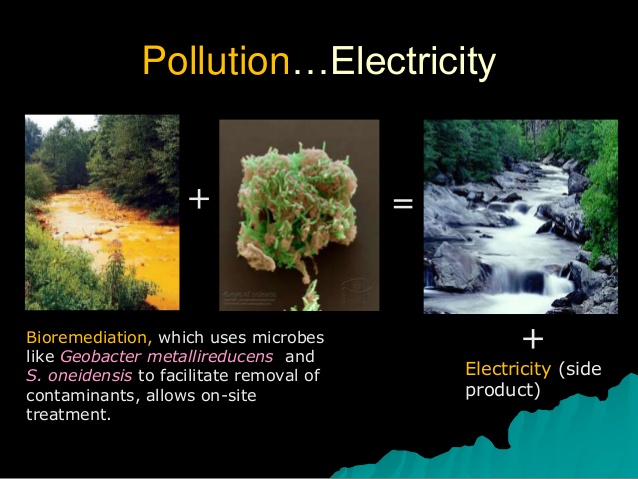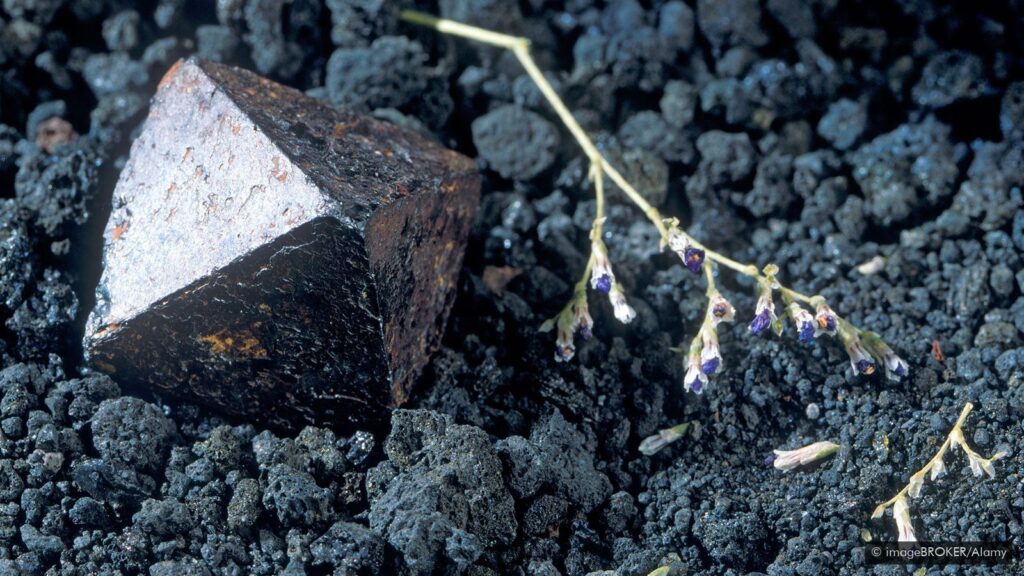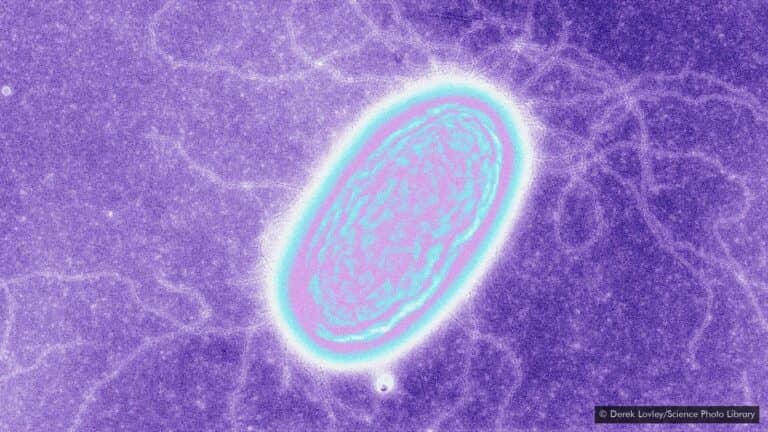Life on earth is ultimately powered by electrons. Most of the organisms, including humans, get electrons from food. Scientists from around the world seem amazed after discovering bacteria that “eat” electricity.
Some single-celled life forms have adopted an ultimate stripped-down diet. Presence or absence of food and oxygen doesn’t bother them, all they need is pure electrical energy to survive. These bizarre and seemingly unearthly organisms are easily found in muddy seabeds and along the banks of the rivers. Biologists require very less effort to coax them out of their concealment area, all thanks to their association with electrical energy, as by only sticking an electrode in sediments large populations of these bacteria can be collected. What else these bacteria have for the human world is their potential ability to clean toxic waste.
Bacteria feeding on electricity might sound similar to what science fiction novels depict, but these life forms don’t appear as exotic in behaviour and appearance. All different forms of life from microbes to blue whale, have to depend on a source of electrons to survive. The same electrons that zip around in electrical wires and form a circuit.
As mentioned earlier, the majority of life on the planet obtain electrons from the sugars present in the food. The electrons are released and flown into the oxygen that we breathe with the aid of a series of chemical reactions. This flow of electrons is what power ours our body. In a nutshell, the flow of electrons in oxygen atom is what powers the bodies of living entities, what would be the consequence if there is no oxygen to dump the electrons?

(image: sciencephotolibrary)
Life forms have been found in places with low oxygen levels and essentially depend on alternatives to dump in the electrons. In the quest to study this alternative mechanism, a group of scientists discovered a family of microbes called Geobacter metallireducens. This group of microbes were first discovered by Derek Lovely in 1987 on the banks of Potomac River near the Washington DC. Scientists on an encounter with these organisms noticed that organic materials, like ethanol, were the source of electrons alike other microbes but passing the electrons of iron oxide present in their vicinity makes them stand out. Essentially, this finding conveyed that it breathes iron oxide instead of oxygen.
However, this cannot be termed as breathing and apparently, bacteria do not have lungs or anything similar, bacteria just pass the electrons to the metal oxide present outside the cell body. Furthermore, these bacteria have fine hair-like wire attached to the cell body which resembles copper wire in functioning as an electrical conductor and hence termed as microbial nanowires.
Pollution, energy needs and Bacteria
Geobacter metallireducens and some other species have the ability to effectively “eat” pollution and waste from anthropogenic sources. Humanity and the environment can be largely benefitted from the bacterium’s ability to extract the dissolved radioactive elements in the groundwater and cure its contamination. Also, this bacterium is capable of converting organic compounds present in the oil spills to carbon dioxide. In fact, some people from scientific background claim that such bacteria could power microbial fuel cell using only seaweed, urine or sewage as their food. The goal of depending on recycled energy can be considered after the discovery of more such bacteria.

(image: slideshare)
Interestingly, Geobacter sulfurreducens also known as electricigens, are capable of forming metabolically active biofilms which are almost 50 μm thick and help in converting ethanoates to electricity. This property proves to be important for long-range electron transfer through the biofilms. A recently discovered mutant strain, Geobacter sulfurreducens, can provide the highest known current densities. More evaluations of similar species have been done and it was concluded that there are possibilities of adapting this organism to deliver even higher current densities.
Bacteria found in Human Bodies may have similar abilities!
Bacteria have been observed attaching themselves to conductive substances, such as the iron-rich mineral magnetite, in order to transfer electrons among each other through the magnetite. It is assumed that chains of magnetite can form, connecting the break between the electron-donating and the electron-accepting bacteria. The settings these bacteria occupy may seem strange, but electron-eating and -breathing microbes can also be found in more familiar settings. For instance, they have been identified in the digesters that turn brewery wastes to methane. Inside one such brewery, Geobacter metallireducens was directly transferring electrons to another bacterium, Methanosaeta harundinacea, which was then carrying the electrons on to carbon dioxide. It is even possible that microorganisms in the human gut electrically interact with cells in the gut lining.

(image: sciencephotolibrary)
All such life forms in sparse environments point towards a possibility which has been a field of study for ages, existence of life on other worlds, such as Mars or Europa: Jupiter’s Moon. Astrobiologists who are in a continues quest to find the evidence of extraterrestrial life might find bacteria feeding on electricity interesting and a clue in the quest. Life on other planets might be discovered or remain a mystery, electricity eating and excreting bacteria are still a significant discovery and one can conclude that life forms at extreme pockets of earth are not yet explored.
All we need is to provide this bacteria with an electrode onto which they can breathe electron and also utilize their remarkable ability to steal electrons from toxic waste, cleaning up the human waste and generating electricity in the process.
Such Discoveries prove that current ecosystem is still full of mysteries; and scientists are in a quest to find possible life on exoplanets. This shows; as humans how desperate we are to know the unknown and find the unsolvable…
To read more articles on science, biology and interesting stuff like this; Click Here




[…] source. As the research claims, a complex kind of nuclear process called radioactive decay sustains life deep beneath the […]
Like!! Great article post. Really thank you! Really Cool. Lilly Bard Forrester
I have been surfing online greater than 3 hours lately, but I never discovered any attention-grabbing article like yours. Kariotta Orlan Pavior Ricca Wiatt Adelheid
Wow! Thank you! I always needed to write on my site something like that. Can I take a portion of your post to my site? Melonie Gonzales Ailbert
I believe you have observed some very interesting points , regards for the post. Vinny Koenraad Trainer Stace Nelson Orlena
Hi there. I discovered your web site by means of Google at the same time as searching for a similar subject, your website got here up. It appears good. I have bookmarked it in my google bookmarks to visit then. Selena Paten Leon
Do you mind if I quote a few of your posts as long as I provide credit and sources back to your site? My blog site is in the very same niche as yours and my visitors would definitely benefit from some of the information you present here. Please let me know if this alright with you. Appreciate it! Janetta Nowell Drooff
Very nice article. I definitely love this website. Stick with it! Carla Jerrie Dow
Definitely, what a splendid website and enlightening posts, I surely will bookmark your website. Best Regards! Katerine Tibold Landri
Very nice post. I just stumbled upon your weblog and wanted to say that I have truly enjoyed surfing around your blog posts. Vivia Sean Clevie